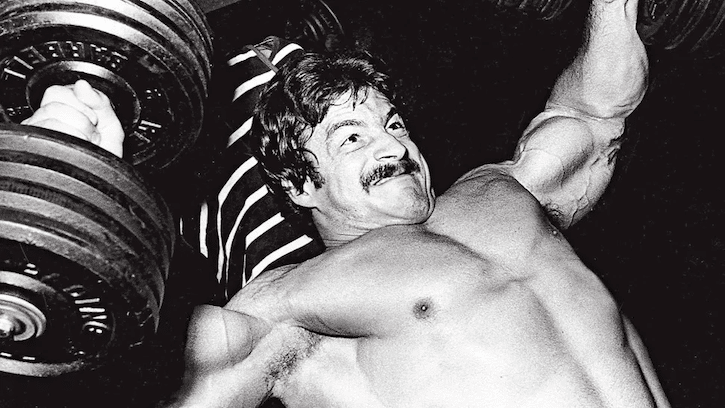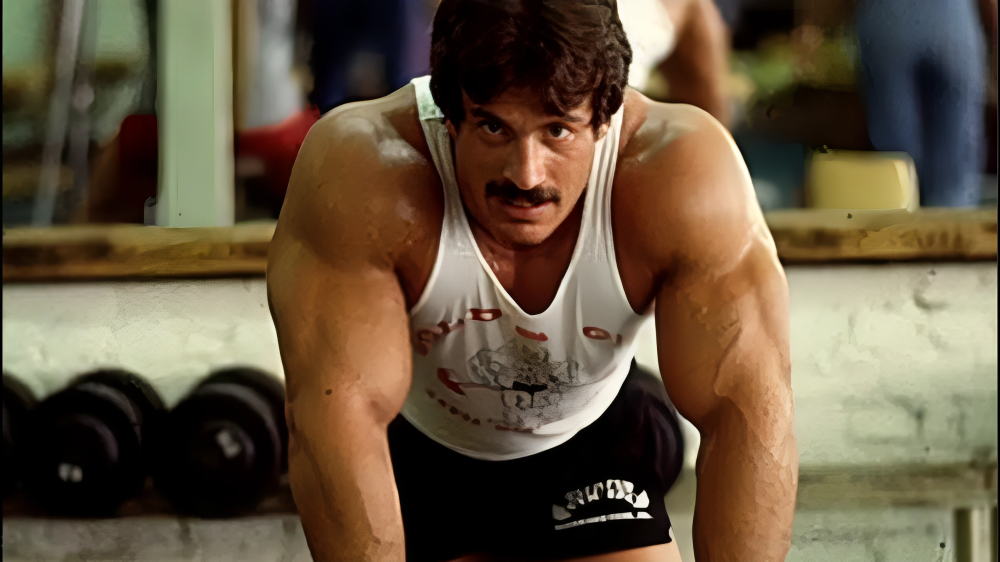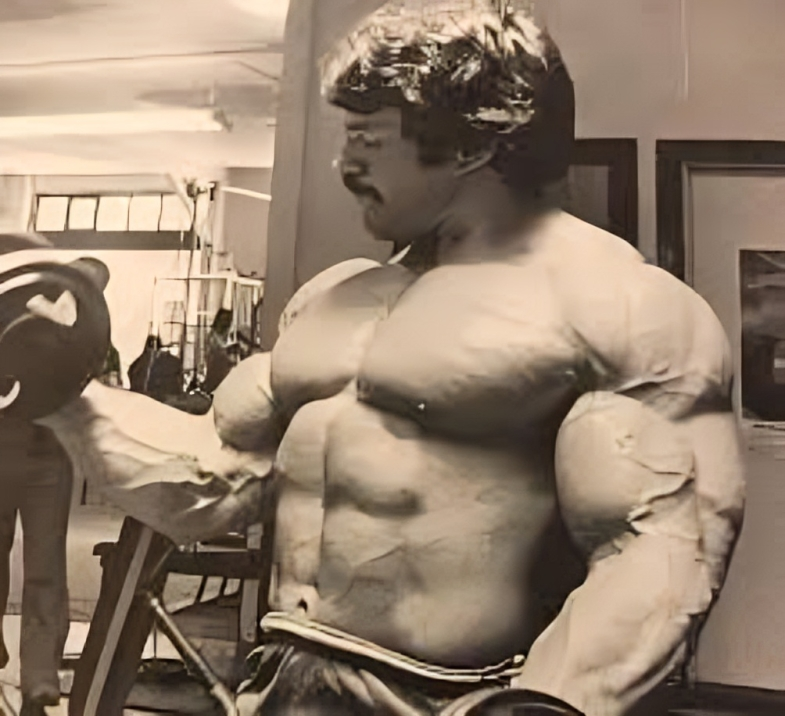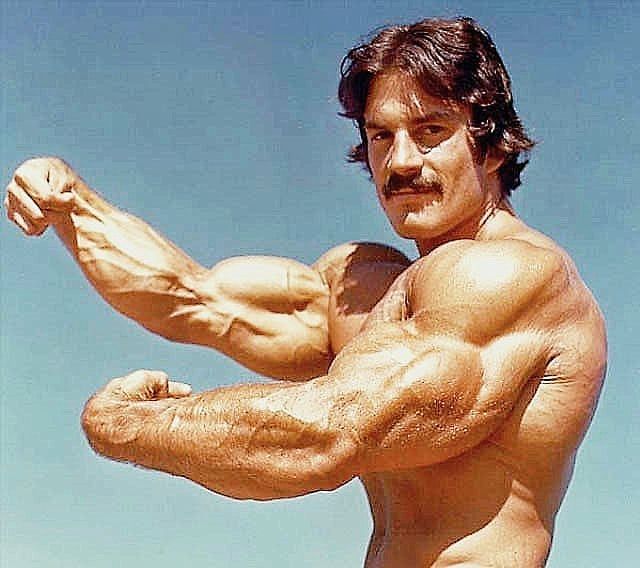“The Truth About Overtraining: How Mike Mentzer Changed the Game”

For decades, the bodybuilding world echoed one mantra: “Train more to grow more.”
But then came Mike Mentzer — a thinker, an iconoclast, and a Mr. Universe champion who shook the very foundation of bodybuilding dogma. Mentzer said that a person not gaining any muscle mass and not being able to progressively overload their set (stuck at same weight) are both obvious over training signs where the body has not been given adequate rest after a workout session.
Mentzer’s message was simple yet shocking: Overtraining is the number one reason most people fail to build muscle.
And unlike many gurus of his time, he had both the body and the brains to back his claims.
What Is Overtraining?
In simple terms, overtraining happens when your body doesn’t get enough time to recover between workouts. While pushing your limits is necessary for progress, constantly pushing without allowing rest leads to stagnation or regression.
Common symptoms of overtraining – Over training signs
- Persistent fatigue and low energy
- Decline in strength and performance
- Sleep disturbances and mood swings
- Weakened immunity
- Lack of motivation or enthusiasm
In short, you may be spending hours in the gym and seeing zero gains — or worse, losses.
Mike Mentzer’s Radical View on Overtraining – Over training signs

Mike Mentzer was not just against overtraining — he considered it the root of failure in most bodybuilding routines. His entire Heavy Duty training system was designed to combat it.
Let’s break down Mentzer’s unique take on overtraining in detail:
1. Intensity vs Volume: The Core Conflict

Mentzer argued that intensity — not volume — is what drives muscle growth.
“You can train hard, or you can train long. But you can’t do both.” – Mike Mentzer
He believed that doing multiple sets of the same exercise was not just inefficient, but counterproductive. Instead, he advocated for a single, all-out set to failure — performed with perfect form, focus, and maximum effort.
2. The Illusion of Progress – Over training signs

In Mentzer’s view, many lifters confuse exhaustion with effectiveness. Just because you’re drenched in sweat or sore the next day doesn’t mean you’re growing.
“Most people are not undertrained. They are grossly overtrained.” – Mentzer
He believed that traditional volume-based training gave the illusion of productivity, when in reality, it was holding back real muscular development due to insufficient recovery.
3. Recovery: The Real Growth Phase
Mentzer emphasized that muscles do not grow during training — they grow after, during recovery. When you keep training a muscle that hasn’t fully recovered, it never gets the chance to grow.
His Heavy Duty system required:
- 72 to 96 hours of rest between training the same body part
- Full days off between workouts, sometimes training only 2–3 times per week
He considered this rest time non-negotiable for serious lifters.
4. Signs You’re Overtraining (According to Mentzer) – Over training signs

Mentzer advised lifters to listen to their bodies. If you’re experiencing the following, he’d say you’re likely overtrained:
- Your strength is dropping week after week
- You’re tired despite good sleep
- Your motivation to train is fading
- You’re training harder but seeing no muscle gain
To him, these were red flags screaming: “Train less. Recover more.”
5. Mentzer’s Take on Cardio and Overtraining
Mentzer wasn’t against cardio, but he believed it should be used strategically, not compulsively.
He warned that too much cardio could contribute to systemic fatigue, interfering with both muscle growth and recovery.
His cardio guidance was simple:
- Use cardio only if your body fat is high
- Keep sessions short and infrequent
- Focus on low-intensity steady-state (LISS) rather than intense sessions
In essence, he saw cardio as a tool, not a staple.
How to Train Like Mike Mentzer (Without Overtraining)

Inspired by his philosophy? Here’s how to apply Mentzer’s Heavy Duty principles to avoid overtraining:
1. Train Infrequently but With Full Focus
- Limit workouts to 2–3 sessions per week
- Keep them under 45 minutes
- Use one all-out set to failure for each major muscle group
2. Track Your Recovery
- Don’t train again until the muscle has fully recovered
- Take extra rest days if progress stalls
3. Ditch the “More is Better” Mentality – Over training signs
- More sets, more reps, and longer sessions often do more harm than good
- Efficiency > volume
4. Add Cardio Only If Needed
- Keep it light and minimal
- Use it as a tool for fat loss, not as your main strategy
Final Words: Less is More, If You Do It Right

Mike Mentzer wasn’t just offering a training program. He was offering a paradigm shift.
In a world that glorifies hustle, Mentzer preached recovery. In a culture obsessed with doing more, he dared to do less — and still won the stage.
Overtraining is real. It’s silent, slow, and deadly to your gains. If you feel stuck, tired, or frustrated with your progress, remember Mentzer’s core message:
“Training is merely the stimulus. Growth is the body’s response. Without recovery, there is no growth.”
So don’t just lift smart.
Recover smart.
That’s how Mike Mentzer changed the game — and how you can change yours.


